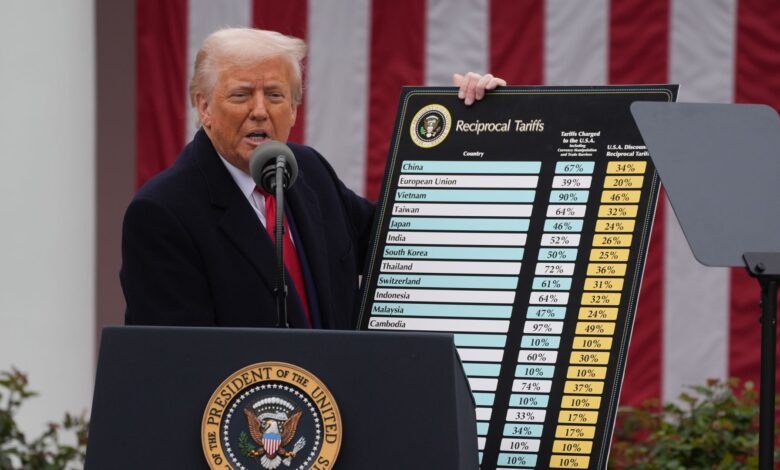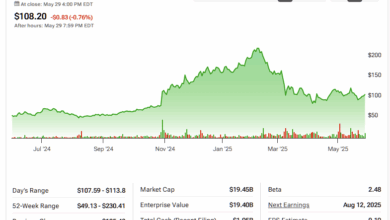What a federal trade court block on Trump tariffs means for consumers

President Trump’s Tariffs Facing Uncertainty Amid Recent Court Rulings
The future of President Trump’s tariffs hangs in the balance following a series of court decisions this week. While some country-specific tariffs have been blocked by the U.S. Court of International Trade, others, such as those on steel, aluminum, automobiles, and auto parts, remain in place.
According to a recent analysis by the Yale Budget Lab, these remaining tariffs are expected to cost consumers nearly $1,000 per year. Ernie Tedeschi, director of economics at the Yale Budget Lab, emphasized that while these tariffs will impact consumers’ wallets, the impact is significantly less than what it would be if the country-specific tariffs were upheld.
The court ruled that Trump exceeded his authority by imposing country-specific tariffs under the International Emergency Economic Powers Act. However, an appeals court has temporarily paused the order as it reviews the case.
Despite the uncertainty surrounding the fate of these tariffs, economists at Capital Economists noted that the tariffs on steel, aluminum, automobiles, and auto parts, as well as certain tariffs on China, are still in effect. These tariffs are estimated to cost the average household $950 in purchasing power in 2025.
The potential savings for households if the lower court’s decision is upheld could be substantial, with households potentially saving over $1,800 this year. Tedeschi pointed out that if the country-specific tariffs were to remain, households could lose around $2,800 in 2025, resulting in a 1.7% increase in consumer prices.
While the impact of these tariffs will be felt most directly in the automotive industry, with car prices expected to rise by 8% this year, steel and aluminum tariffs will also affect a wide range of consumer products, from homebuilding to household appliances.
Looking ahead, the Supreme Court may ultimately decide the fate of Trump’s tariffs, a process that could take many months. Despite the recent court ruling, experts believe that the Trump administration could still find other avenues to impose tariffs on additional products like pharmaceuticals, semiconductors, copper, and lumber.
In conclusion, while the recent court decision represents a significant development in the ongoing tariff war, it may not mark the end of things. The future of President Trump’s tariffs remains uncertain, with potential implications for both consumers and the broader economy.





